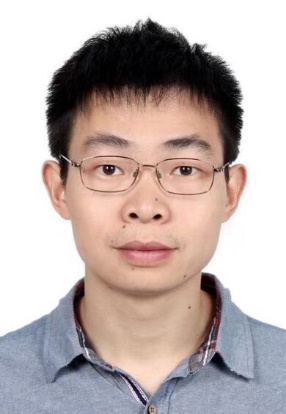


Education and Appointments: 2022.07- Professor, Chengdu Institute of Biological Sciences, Chinese Academy of Sciences, China
2013-2021 Postdoctoral Fellow, Icahn School of Medicine at Mount Sinai, New York, U.S.A.
2011-2013 Postdoctoral Fellow, Institute of Genetics and Developmental Biology, Chinese Academy of Sciences, China Research Interest My research interests include inner ear development, hair cell regeneration, and regulation of gene expression. The details are described below: Data from the World Health Organization indicate that more than 20% of the world's population has varying degrees of hearing loss. Factors such as noise, drugs, aging, and genetic variants can cause the death of auditory hair cells, leading to hearing defects or deafness. Repairing these hearing defects through regenerated hair cells is the most fundamentally effective treatment. Amphibians have a strong ability to regenerate tissues and organs, and they are important model animals for the study of regeneration. Our lab intends to use amphibians (frogs) and mammals (mice) as animal models to investigate the molecular regulatory mechanisms of inner ear development, auditory hair cell development, and regeneration from the perspectives of genetics, developmental biology, genomics, evolutionary biology, neurobiology, bioinformatics and other research. Through comparative studies of frogs, mice and humans, we will provide new theoretical breakthroughs to solve the regeneration problems of mammalian auditory hair cells; and drawing on the strong tissue regeneration ability of amphibians, we will establish an animal model for regenerative medical restoration of hearing in human, and explore how to realize restorative treatment of human hearing defects. At present, the main research work includes the following directions: 1. Gene expression regulatory network research during inner ear development; 2. Mechanisms of differentiation and fate determination of auditory hair cells; 3. The mechanism of artificially induced damage and regenerative repair of frog auditory hair cells. 4. Comparative genomics and evolutionary analyses of frogs, mice and humans to uncover key regulatory genes or elements (enhancers) associated with hair cell development or regeneration, as well as their functional studies. Public Services Honors Seleted Publication 1. Li J#, Zhang T#, Ramakrishnan A#, Fritzsch B, Xu J, Wong EYM, Loh YE, Ding J, Shen L, and Xu PX*. Dynamic changes in cis-regulatory occupancy by Six1 and its cooperative interactions with distinct cofactors drive lineage-specific gene expression programs during progressive differentiation of the auditory sensory epithelium. Nucleic Acids Research 2020, 48: 2880–2896. 2. Xu J#, Li J#, Zhang T#, Jiang H, Ramakrishnan A, Fritzsch B, Shen L, and Xu PX*. Chromatin remodelers and lineage-specific factors interact to target enhancers to establish proneurosensory fate within otic ectoderm. Proceedings of the National Academy of Sciences of the United States of America 2021, 118 (12) e2025196118. (#co-first author) 3. Li J#, Cheng Chunming#, Xu J, Zhang T, Tokat B, Dolios G, Ramakrishnan A, Shen L, Wang R, Xu PX*. The transcriptional coactivator Eya1 exerts transcriptional repressive activity by interacting with REST corepressors and REST-binding sequences to maintain nephron progenitor identity. Nucleic Acids Research 2022, doi.org/10.1093/nar/gkac760. 4. Li J#, Xu J#, Jiang H#, Zhang T, Ramakrishnan A, Shen L and Xu PX*. Chromatin remodelers interact with Eya1 and Six2 to target enhancers to control nephron progenitor cell maintenance. Journal of the American Society of Nephrology 2021, 32: 2815-2833. 5. Li J, Rodriguez Y, Cheng C, Zeng L,Wong EYM, Xu CY, Zhou MM and Xu PX*. EYA1's Conformation Specificity in Dephosphorylating Phosphothreonine in Myc and Its Activity on Myc Stabilization in Breast Cancer. Molecular and Cellular Biology 2017, 37(1). pii: e00499-16. Supported Projects National Natural Science Foundation of China
Sichuan Province "Tianfu Emei Program" Youth Program Chengdu “RongPiao” Talent Program |
|||||||||||